
Admissions Open
PG Diploma in Psycho-Oncology
offered by Texas School of Mental Health, United States
in Association with IIT, Hyderabad
Apply Now
In a heartfelt ceremony this July, the Texas School of Mental Health (TSMH) celebrated a world-first: the graduation of the inaugural batch of the Blended Post Graduate Diploma in Psycho-Oncology. It was not just another convocation, it was history being written, and a powerful message to the world that healing must go beyond the physical.
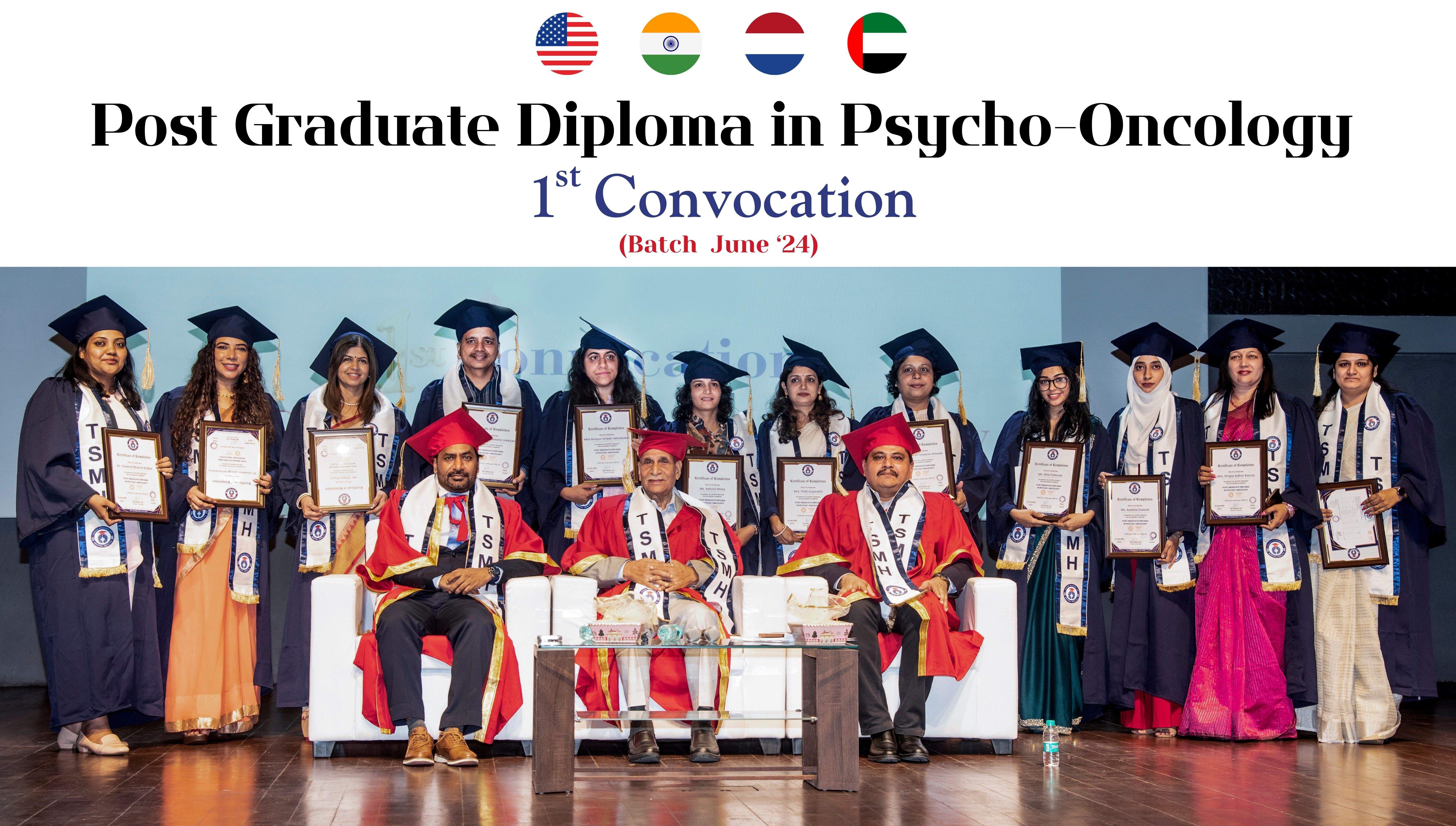
Cancer is often associated with fear of the unknown and death. It impacts not only the patients but also their family members, caregivers, social volunteers, and healthcare professionals, all of whom may experience mental strain.
According to the World Health Organization (WHO), cancer causes approximately 20 million deaths worldwide.
Psycho-oncology is a multidisciplinary subspecialty of psychology that focuses on the mental health aspects of cancer care. As the number of new cancer cases continues to rise globally, so does the need for trained Psycho-Oncologists.
To address this growing demand, the Texas School of Mental Health has developed a comprehensive blended program: the Post Graduate Diploma in Psycho-Oncology.
Join the fight against cancer by becoming a Psycho-Oncologist.

For non-psychology graduates, to understand the basics of psychology, counseling & therapeutic interventions.
To understand the 12 anatomy systems of the human body, human biology and its connection with cancer, body and mind.
Knowledge of the basics of oncology is a must for the Psycho-oncologist to understand cancer biology, types of cancer, stages and grading of cancer, treatments and side effects of cancer.
Health Psychology
Modules based on Six Phases of Psycho-oncology, the entire life journey of cancer and the psychological and emotional issues associated with each phase of cancer
Modules for caregivers, volunteers, social workers and healthcare professionals
Women related cancers
Addiction related cancers
Pediatric cancers
Palliative care
Understanding the psychiatry aspect of cancer
On-campus residential learning or research work on any areas of Psycho-oncology
100 Hours of internship program to provide practical exposure
Weekly Live Lectures by experienced professionals to provide hands-on exposure and to answer queries and doubts.
Program Title:
Post Graduate Diploma in Psycho-Oncology
Accredited with 530 CPD Credits
Issued by the Texas School of Mental Health
Internationally recognized CPD
Verify at: www.thecpdregister.com
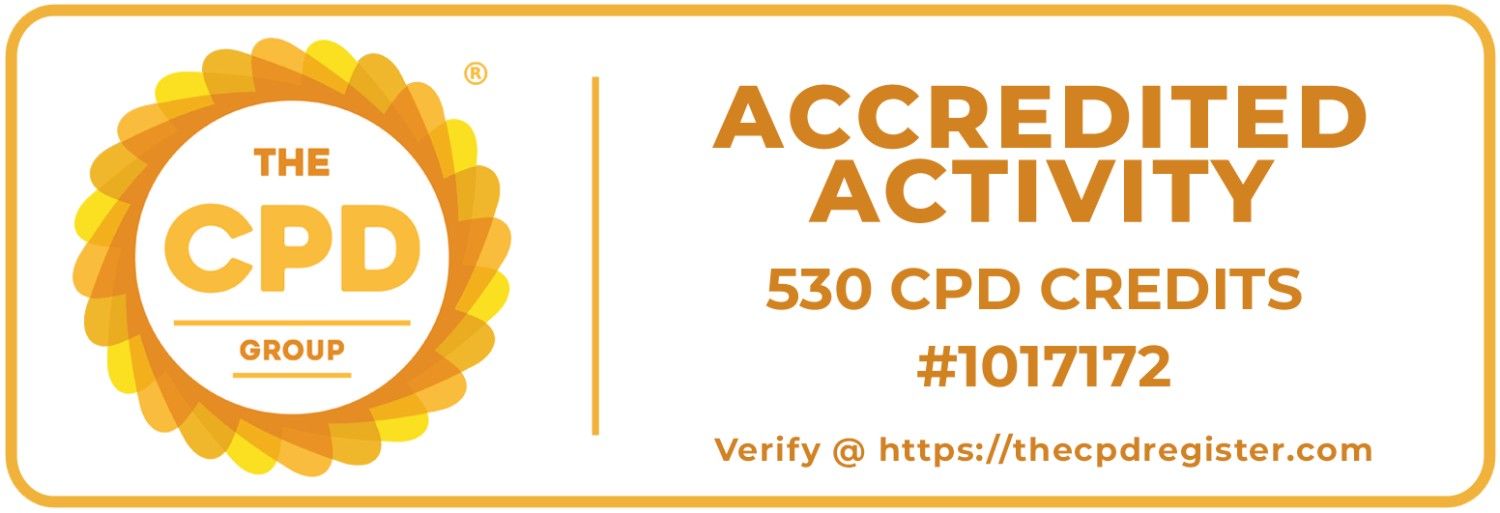
For candidates with a Master's degree in Psychology, Medical Sciences,
Life Sciences, or Nursing
Program Title (HSSC):
Training Program on Psycho-Oncology
Separate HSSC assessment
Successful candidates receive a Joint Certification:
Texas School of Mental Health + HSSC
Verify at: www.healthcare-ssc.in
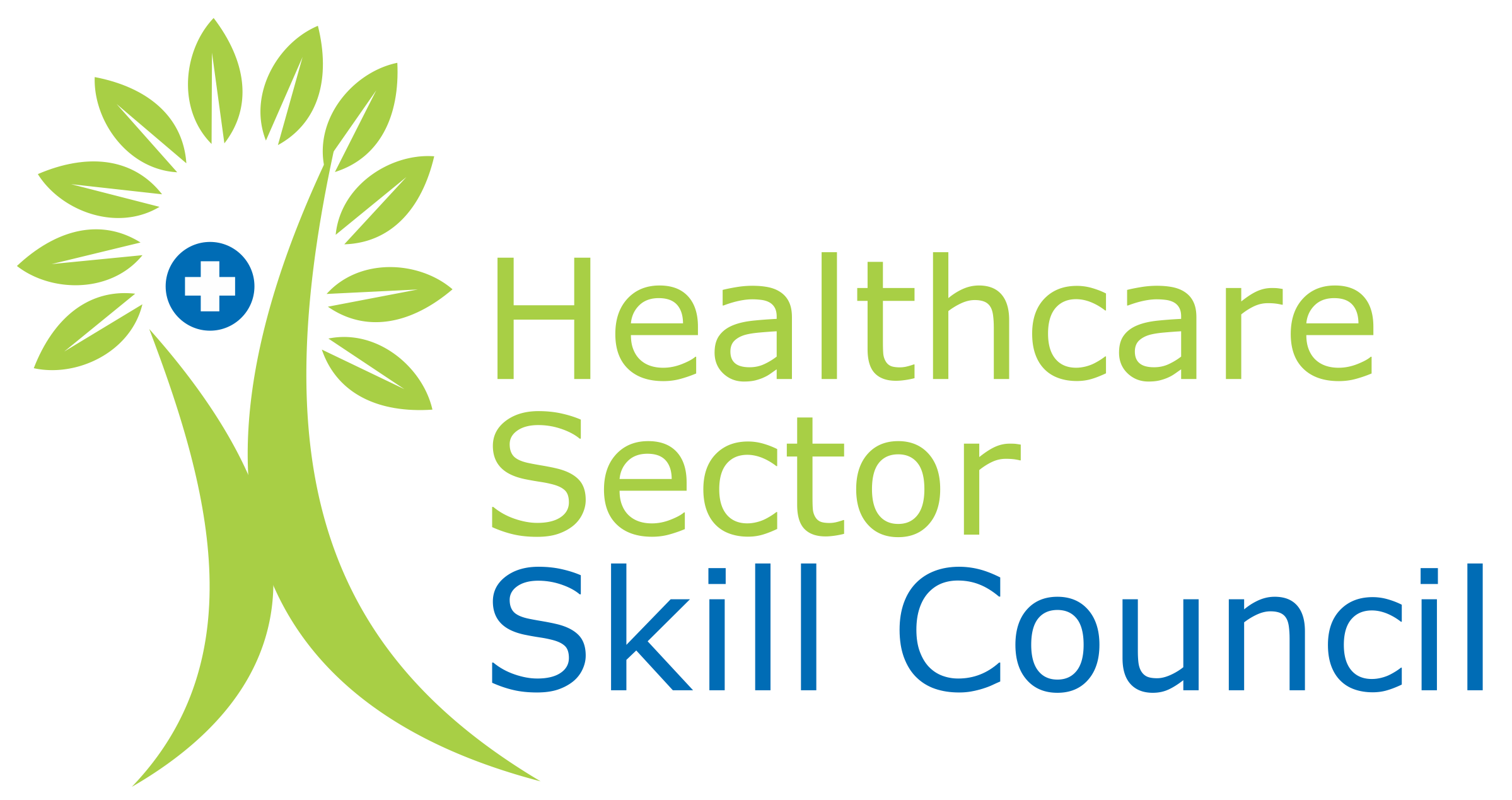


We have faculty from multiple disciplines specialized in the following areas:
Click here to know more.
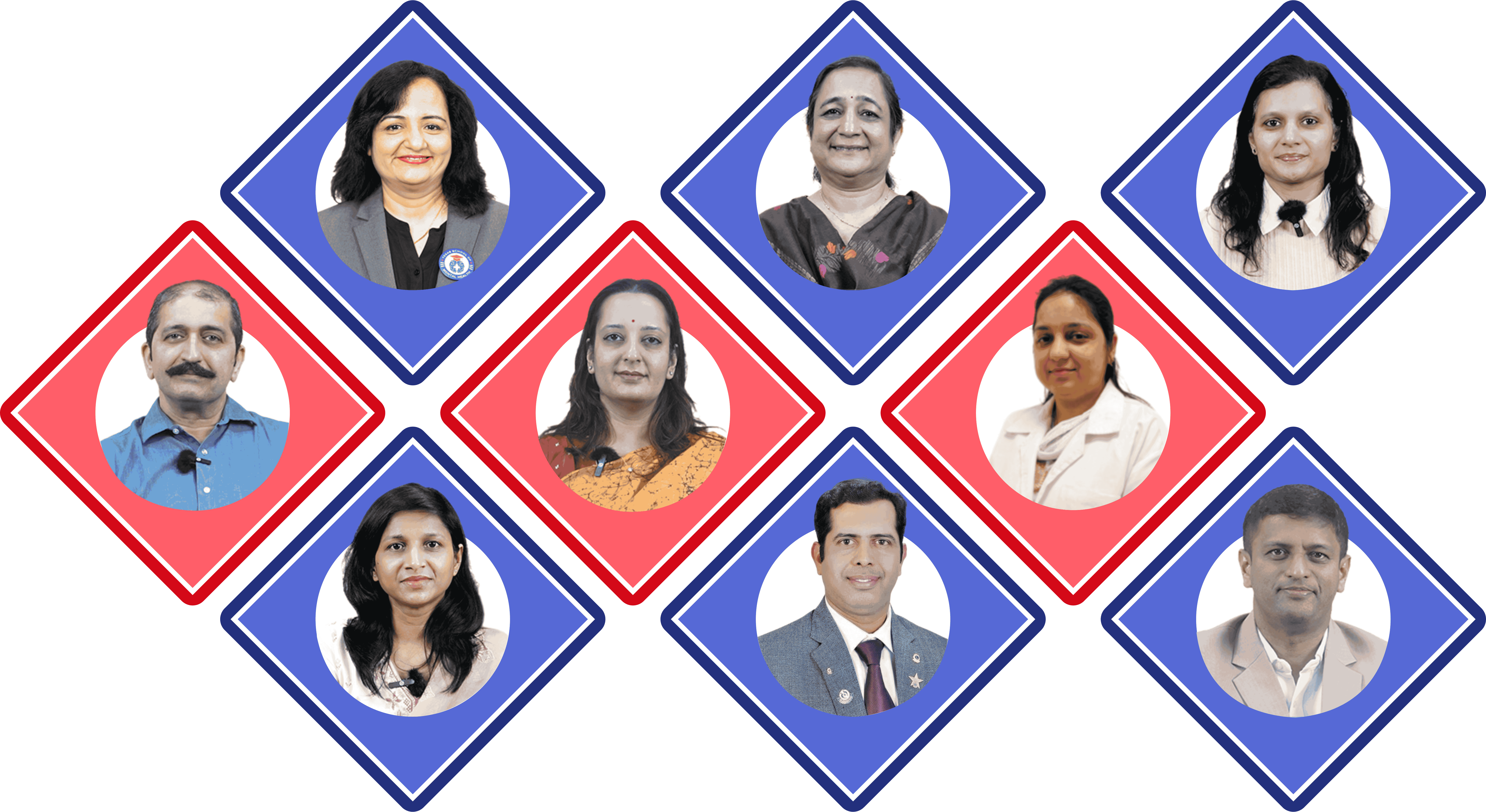
Click here to know more.
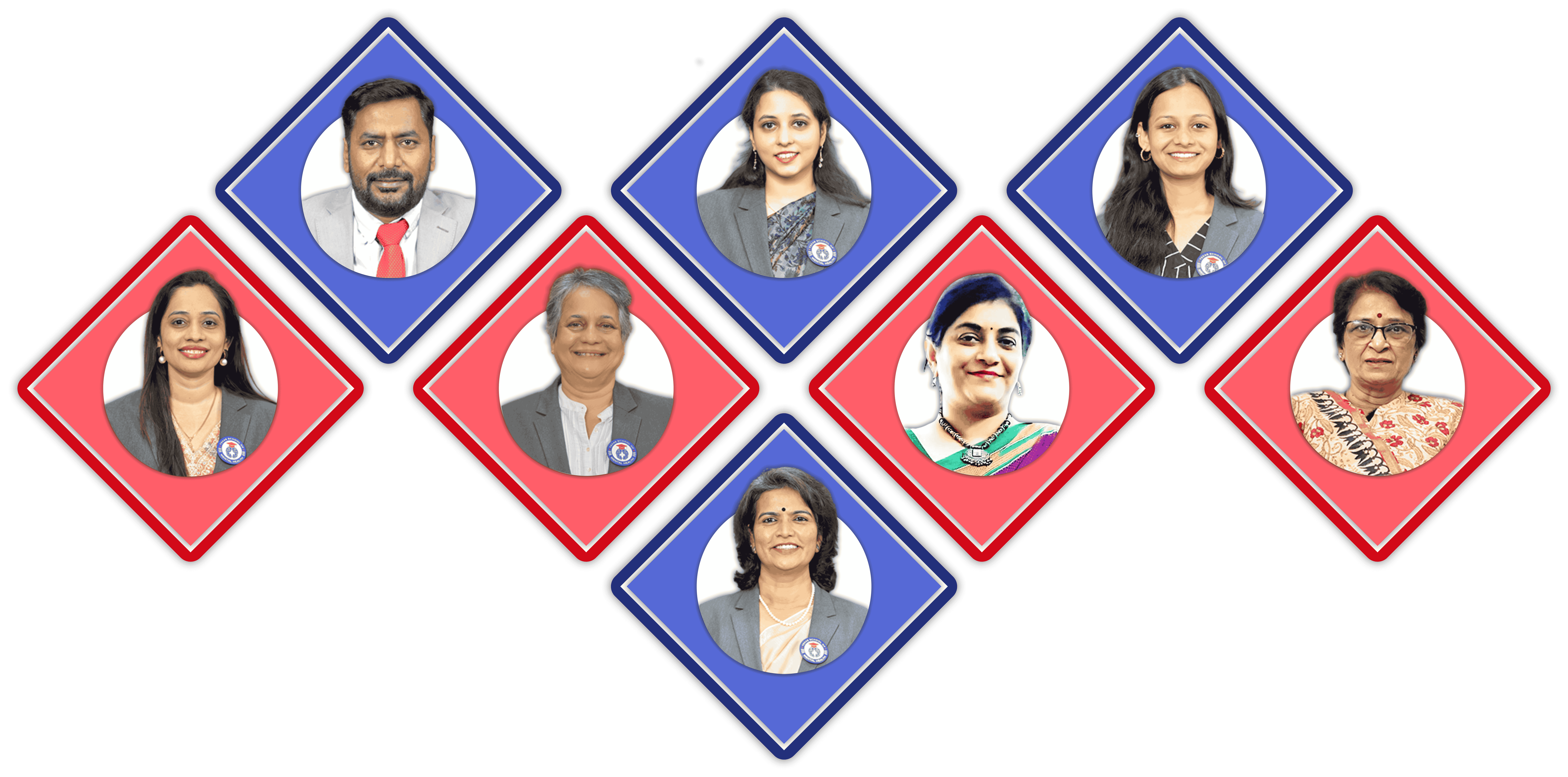
Click here to know more.
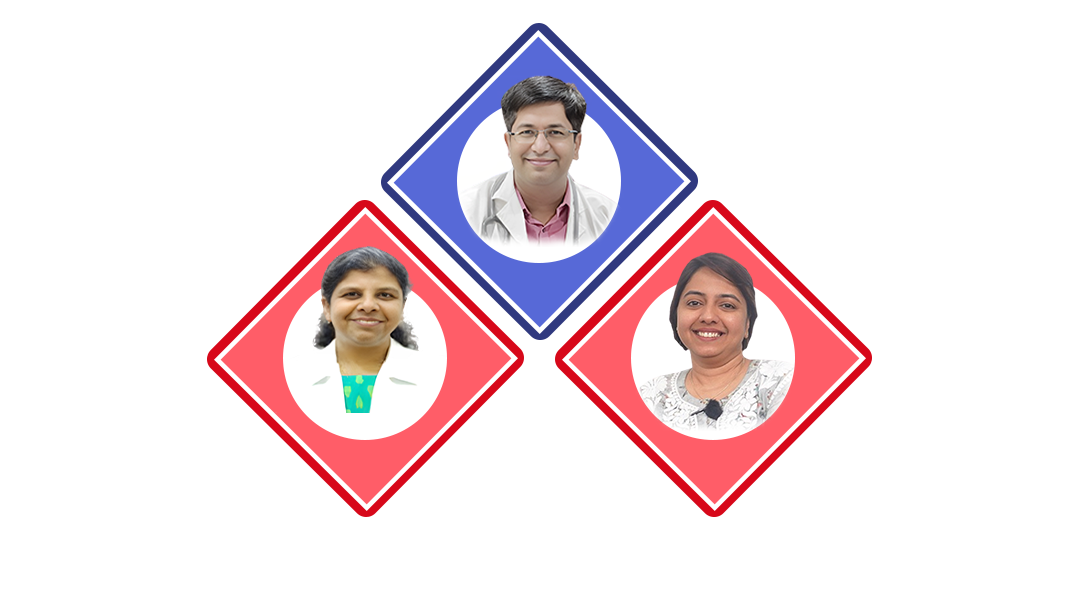
Click here to know more.
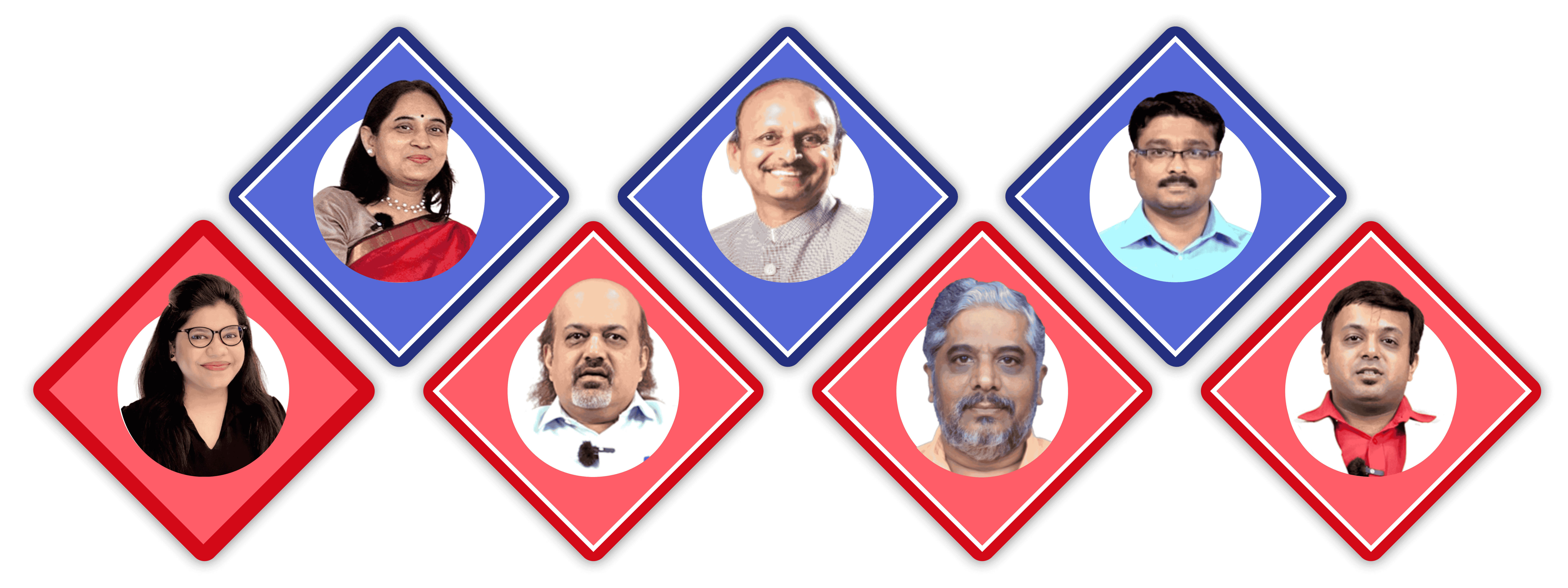
Click here to know more.
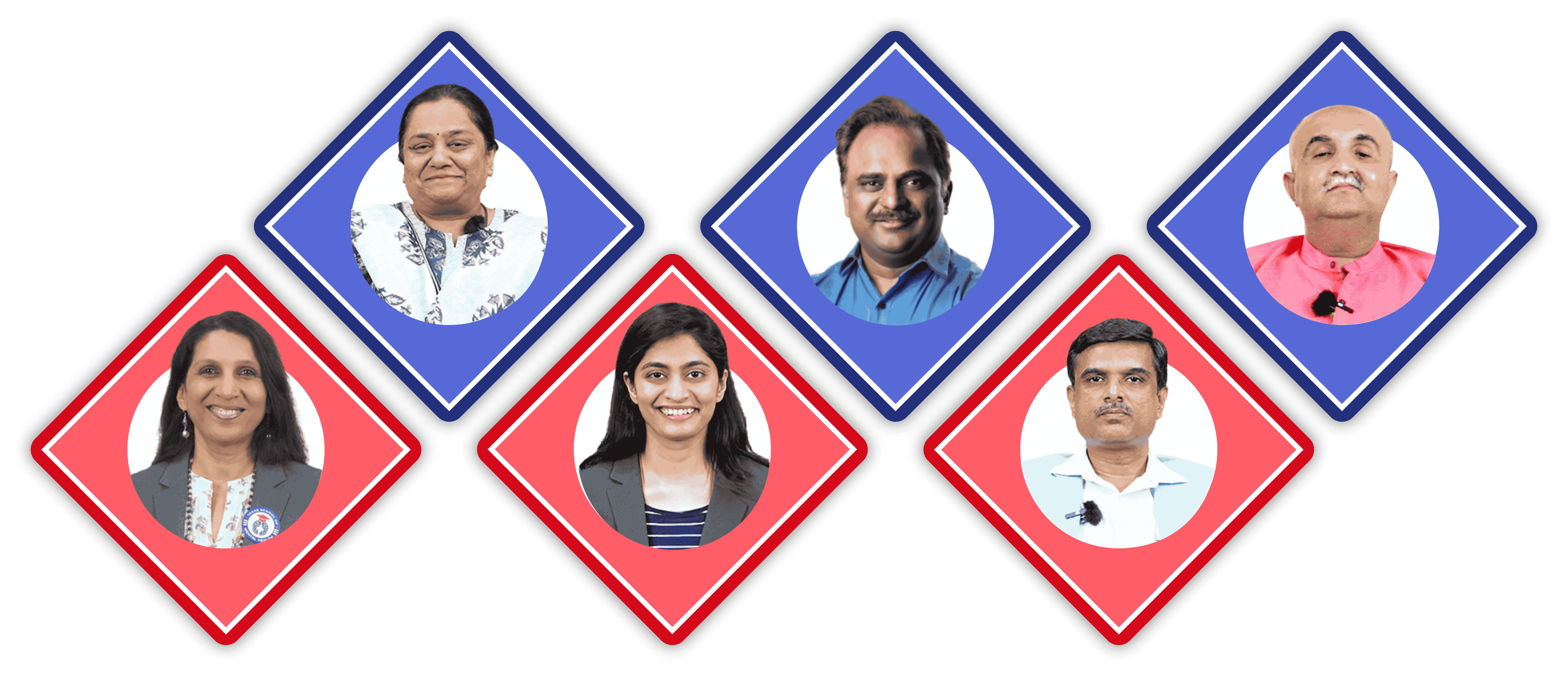
Click here to know more.
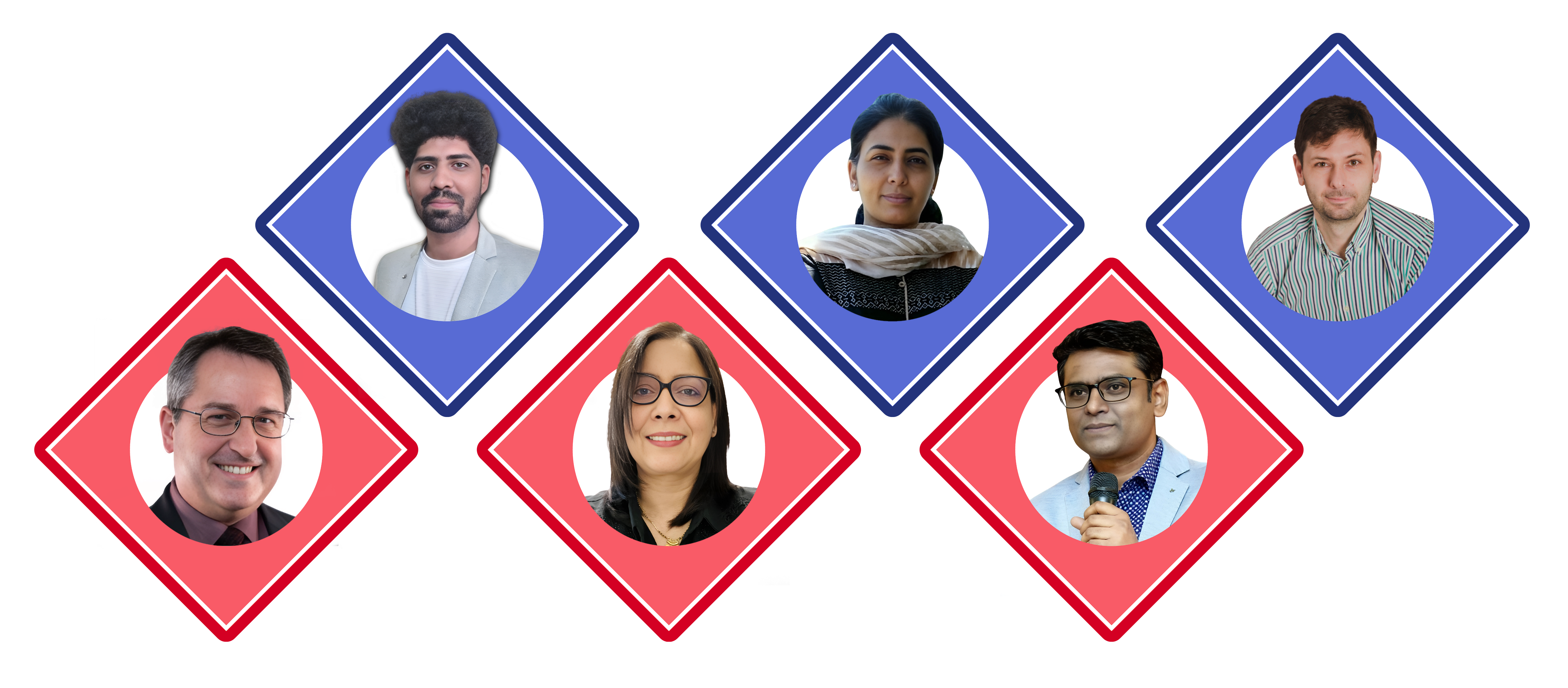
1. Online Registration - Apply online & submit registration form at www.tsmhfs.com/apply
2. SOP Submission - Write 250 words of Statement of purpose (SOP) explaining "Why you want to do this Program?".
3. Application Review - After successfully submitting your application, the academic team will review your application.
4. Admission Confirmation - After clearing all steps, a selection email will be sent to selected students.
5. Documentation and Fees Payment - Selected candidates will have to submit the scanned copies of their academic transcripts and pay the fees online. After successful completion of all the steps, selected candidates will receive an official letter of admission.
Program fee for PG DIPLOMA in Psycho-Oncology is $15,00 / Rs.1,33,000
Installment options are available and can be discussed with the admissions team.
Job opportunities at Hospitals & Cancer Treatment Centres, Palliative Care and Hospice centres, NGOs & Cancer Support Groups, Rehabilitation Centres, Pharma Companies, the Corporate Sector under CSR initiatives, Research Institutions, Academic Institutions, Policy & Advocacy.
You can start your private practice subject to the legal requirements of your country and offer counseling, psychosocial awareness, subject-specific workshops, training and work with various organizations on a contractual basis.

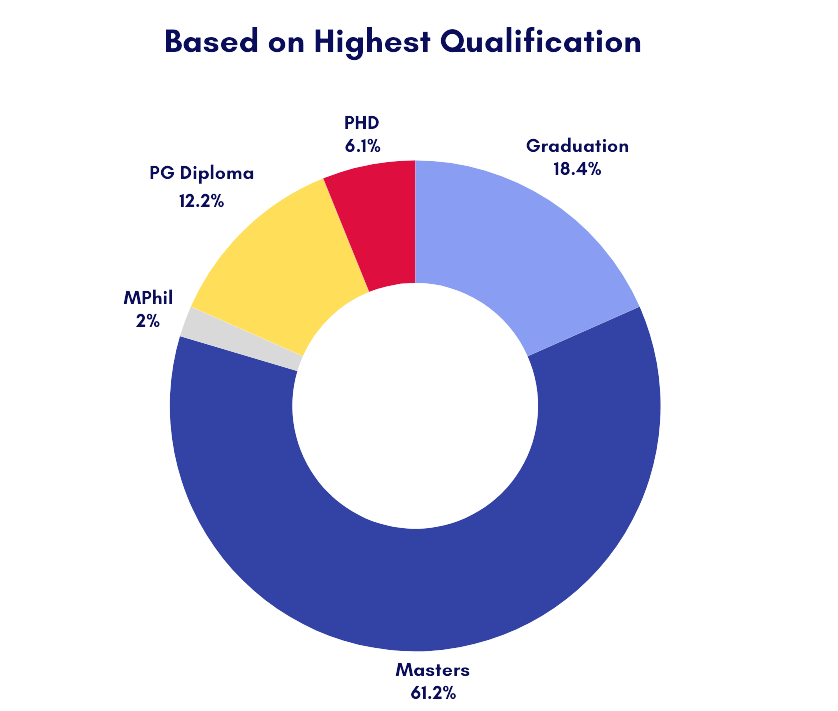
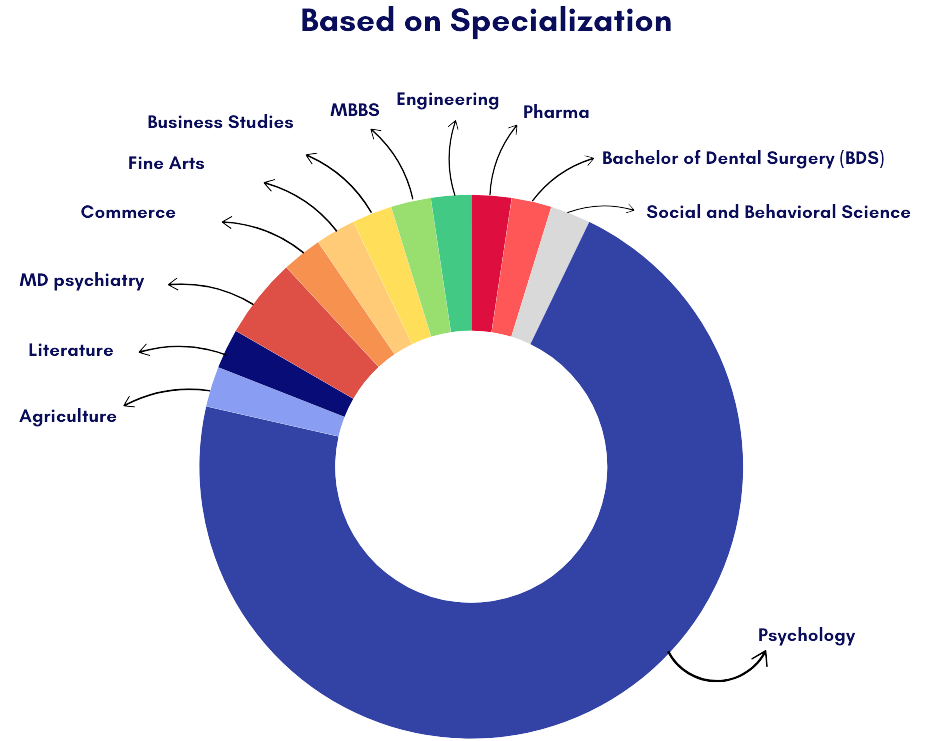
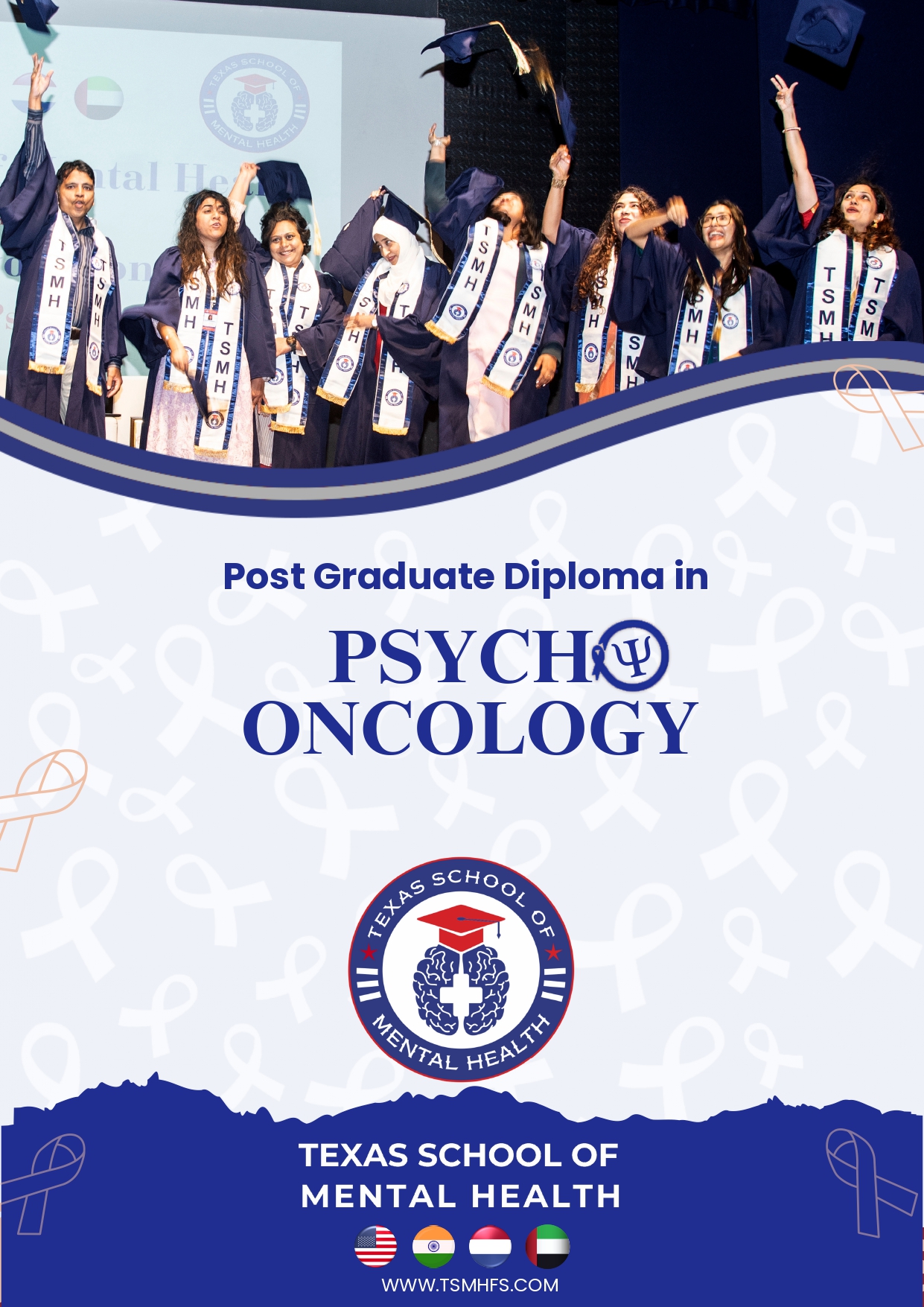
Discover all the key features, courses, and benefits we offer. Our brochure contains detailed information to help you make an informed decision about your future with us.
Discover all the key features, courses, and benefits we offer. Our brochure contains detailed information to help you make an informed decision about your future with us.
Oncology is the study and treatment of Cancer.Psycho-oncology is a multidisciplinary subspecialty of psychology that focuses on the mental health aspects of cancer care.Psycho-oncology addresses the mental health aspects of cancer affecting patients, their families, caregivers, volunteers, and medical professionals.
Cancer is not just a physical ailment it also poses significant
mental health challenges. Its impact extends beyond those diagnosed
with cancer, affecting their family members as well. In 2022, India
reported over 1.41 million new cancer cases and approximately
916,000 deaths. With a population of 1.5 billion, this means that
every ninth person in India will face a cancer diagnosis in their
lifetime, totaling more than 120 million individuals.
The emotional and lifestyle changes that accompany a cancer
diagnosis can overwhelm family members, so it's estimated that
around four additional people in each family will be indirectly
affected by this news. This brings the potential number of people in
need of psycho-oncology services to around 600 million.
What is the current situation? There is one oncologist for
approximately 2,000 patients, and only seven psychologists for every
10 million people. If this is concerning, the numbers for
psycho-oncologists are even more alarming, as they are nearly
non-existent.
A psycho-oncologist provides support to cancer patients, their
families, and caregivers by addressing the psychological and
emotional effects of the disease. They offer counseling, coping
strategies, and emotional support to help patients manage anxiety,
depression, and uncertainty related to their diagnosis and
treatment. Additionally, psycho-oncologists facilitate communication
among patients, families, and healthcare providers to enhance
understanding and decision-making.
Their focus is on improving the quality of life by addressing issues
such as pain, fatigue, and other symptoms, while also offering
support for end-of-life care and bereavement. The role of a
psycho-oncologist complements medical treatment, aiming to enhance
overall well-being and resilience throughout the cancer journey for
both patients and their support networks.
The Texas School of Mental Health, in association with the Indian
Institute of Technology-Hyderabad, has developed a Post Graduate
Diploma Program in Psycho-Oncology. This program has been designed
through the collaborative efforts of an academic panel and faculty
members who specialize in various fields, including oncology,
psychiatry, psychology, social work and academia, as well as
individuals with personal experience in cancer.
The program is delivered in a hybrid format and provides a
comprehensive understanding of oncology. It includes real-time case
studies, demonstrations of expert counseling, and in-depth
explanations from professionals in the field. Additionally, the
curriculum is enhanced by a week of residential learning followed by
a significant
internship component.
- University Graduates and Postgraduates
- Psychologists
- Cancer patients and their family members
- Social workers
- Medical and healthcare professionals
- Professionals seeking a mid-life career change
Applicants without a psychology background must complete a
mandatory program component on the Fundamentals of Counseling before
proceeding to the Postgraduate Diploma in Psycho-Oncology.
Certainly! If you do not have a background in psychology, you can still be eligible for this program. Graduates with a psychology degree can directly enroll in the PG Diploma in Psycho-Oncology. However, non-psychology graduates will need to complete a bridge course that covers an Introduction to Psychology and the Fundamentals of Counseling Psychology. Once you finish this bridge course, you can move on to the psycho-oncology course modules.
The duration of the program is 530 hours.
| Pre-recorded (in hours) | Live lectures (in hours) | MCQs & Assignment (in hours) | |
|---|---|---|---|
| Orientation | - | 6 | - |
| Introduction / bridge course | 25 | 6 | 25 |
| Oncology Module | 15 | 6 | 20 |
| Psycho-Oncology Module | 115 | 30 | 120 |
| Residential | - | 40 | - |
| Internship | - | 100 | 22 |
| Total | 155 | 188 | 187 |
| Total Duration - 530 hrs | |||
Follow the steps below to begin your application process:
1. Online Registration: Apply online and submit the registration
form at www.tsmhfs.com/apply
2. SOP Submission: Write a 250-word Statement of Purpose (SOP)
explaining "Why you want to pursue this program?"
3. Application Review: After successfully submitting your
application, the academic team will review it. Shortlisted
candidates will be invited for an online interview.
4. Online Interview: The academic team or faculty will conduct an
online interview to assess your suitability for the program.
5. Admission Confirmation: After completing all steps, a selection
email will be sent to the successful candidates.
6. Documentation and Fee Payment: Selected candidates must submit
scanned copies of their academic transcripts and pay the fees
online. Once all steps are successfully completed, candidates will
receive an official letter of admission.
Your application will undergo a thorough review by our expert team to evaluate your eligibility and the quality of your 250-word statements. Following this, an interview will be conducted, and selections will be made based on the number of available spots. Please note that admission are granted on first-come, first-served basis, so we encourage you to submit your application as soon as possible.
The batch will have a maximum of 20-25 learners.
The program consists of 60% online learning and 40% in-person engagement.
Live sessions are scheduled once a week and last for two hours. These sessions are aligned with the weekly content and will be led by a subject expert on the Zoom platform. They will include a question-and-answer portion. All live sessions will be recorded and made accessible to learners who may miss them. However, attendance is mandatory since it is important during the evaluation process. Additionally, attending these sessions provides an opportunity to interact with faculty and participate in discussions.
The Texas School of Mental Health in the USA signed a Consulting Service Agreement with IIT Hyderabad on February 1, 2023, for the Post Graduate Diploma in Psycho-Oncology. Under this consulting partnership, IIT Hyderabad, led by Dr. Mahathi Chittem (Associate Professor of Health & Medical Psychology), has contributed to the development of the course. They have identified four industry subject matter experts and designed, developed, and delivered ten sessions of the course.
Yes. Upon successful completion of the online course, residential program, and internship, participants will receive a certificate.
The PG Diploma program has been meticulously developed by experts
with extensive backgrounds in oncology, psychology, psychiatry,
research, academia, cancer care, social work, cancer survivorship,
family support, and psycho-oncology. While the Texas School of
Mental Health operates in both the US and the Netherlands, this
program is launched in association with the prestigious Indian
institution, IIT Hyderabad.
The program is built upon real-time case studies and the faculty
members bring exceptional experience from their respective fields.
The comprehensive internship component is thoughtfully designed to
provide students with practical exposure and valuable learning
experiences.
One crucial aspect to consider is the demand for psycho-oncologists
both in India and globally. The need for psycho-oncologists is in
the five-figure range, whereas the current number of available
professionals is only in the two-figure range.
We have taken the pioneering first step in addressing this gap. In
time, we expect you to make a significant impact on how cancer is
treated worldwide.
Content will be made available as the course progresses. You will gain access to new material on a weekly basis, allowing you to review all content up to the current week. You can complete the work at your own pace. Until the current week, you may access all materials as many times as you like. However, once you submit an assessment or assignment, you will not be able to attempt it again; you can only view your response. If you have any questions, please feel free to contact us directly.
There are various types of assignments, which include:
1. Objective-type questions: These consist of single-choice and
multiple-choice answers, where the assessment results are
immediately visible.
2. Descriptive questions: These require written responses that can
range from short answers to more extensive, detailed responses.
3. Application-based assignments: These assignments allow for
flexibility in completion, giving you the opportunity to take your
time and upload your work to the designated course link.
1. Attendance at live lectures is required.
2. Participation in a residential program.
3. All online course assignments must be completed within the
specified timeframe.
4. Comprehensive evaluations of the internship must be conducted,
which include both an internship viva and the submission of the
project report.
The program includes both flexible and fixed learning components. For instance, you are required to attend live sessions on a weekly basis, participate in the residential program, complete your internship on time, and submit assignments by their respective deadlines. However, you have the freedom to manage your weekly studies at your own pace.
Yes, expert-led live sessions will occur weekly, focusing on the subject matter covered during that week. Additionally, there is an online forum where you can engage in discussions with your fellow batchmates.
The course is conducted entirely online and presented in a digital format. Educational materials will be accessible through recorded videos, audio files, lectures, PowerPoint presentations, and written texts. Additionally, we will provide external links to relevant research material and study resources available on the internet. We recommend that you take notes during your learning sessions. At the beginning of each week, you will receive the learning content designated for that specific week.
Yes. There is a dedicated in-house support team to assist you with technical difficulties. Also, you can contact us at this mail ID - info@texasschoolmh.com, or on this contact number +91 95453 00800.
The program fee for the PG Diploma in Psycho-Oncology is $15,00 (Rs. 1,33,000). Installment options are available and can be discussed with the admissions team.
The internship is designed to provide a comprehensive and hands-on
experience in the field of psycho-oncology. Participants will engage
with 15 different cases involving various types of cancer. These
cases will include individuals diagnosed with cancer, their family
members, caregivers, volunteers, and medical professionals.
Steps to Complete the Internship:
1. Identify 15 cases of different types of cancer.
2. Create a questionnaire and obtain approval from our experts.
3. Complete an intake form for each patient, including personal
details and cancer history.
4. Conduct interviews based on the approved questionnaire.
5. Compile a report analyzing the 15 cases and submit it.
6. Present your internship viva based on the project report.
This program lasts for five days and includes various activities and
sessions throughout its duration:
1. Interaction with experts and colleagues
2. Dialogue with stakeholders
3. Panel discussions
4. Film screenings and discussions
5. Role plays
If you experience a personal emergency that prevents you from attending a live session, please notify the academic coordinator as soon as possible. All live sessions are recorded and will be available for online learning. If you miss a deadline, contact us at info@texasschoolmh.com. We will assess each situation individually and respond accordingly.
Absolutely! Through our online technology platform, you can engage
in a forum designed for discussion, sharing and connecting with
fellow participants.
Additionally, during the live sessions and residential program,
you'll have the opportunity to interact directly with our experts,
which will help you build valuable connections.
During the internship phase, you will have the chance to develop a
network that includes hospitals, oncologists, psychologists, and
other relevant stakeholders.
Our team consists of faculty and contributors with expertise in various fields, including Oncology, Psycho-Oncology, Psychology, Psychiatry, Social Work, academia and even cancer survivors, along with other key stakeholders.
To participate in the online program, you will need a stable internet connection and a device such as a laptop, tablet, or mobile phone. For the best learning experience, we recommend using a laptop. Once your admission is confirmed, you will receive your login credentials. These credentials will allow you to access our Learning Management Software, where you can log in and access the learning materials.
According to a report by the Indian Council of Medical Research
(ICMR), one in every nine individuals in India is affected by
cancer, which means that over 100 million people in the country are
dealing with this disease. Furthermore, for each person living with
cancer, at least four others—such as family members and loved
ones—experience mental distress. This leads to a significant impact,
with an estimated 500 million people in India being mentally
affected by cancer overall.
Assuming that one psycho-oncologist is needed for every 100,000
individuals, it becomes clear that at least 50,000
psycho-oncologists are required to meet the needs of this population
of 500 million.
Psycho-oncologists can find employment opportunities in cancer
hospitals or medical facilities focused on cancer care.
Alternatively, they also have the option to establish their
outpatient department (OPD) services as psycho-oncologists.
We are dedicated to offering thorough career guidance. While we cannot guarantee job placements, we will provide all the necessary assistance to help you find employment opportunities and explore self-employment options. Your success in your career journey is our main priority, and we are here to provide the resources and support you need to achieve your goals.
Our program is specifically designed to meet the needs of working professionals. The self-paced online learning format takes into account your job commitments, family responsibilities, and personal obligations. With this program, you can effectively balance your work, family, and personal life while pursuing your educational goals.
You will not be eligible to receive the PGDPO certificate. Additionally, please be aware that you cannot request a refund of your admission fees.
This is a postgraduate specialized program designed to enhance your existing knowledge and skills. While your previous degree and work experience will help you secure a job, this program will further enrich your qualifications. It is a private program categorized under finishing schools. Ultimately, your degree, experience, knowledge, and skills will determine whether a recruiter hires you. All these factors will play a significant role in your job search.
The PG Diploma in Psycho-oncology is accredited by the Continuing Professional Development (CPD), an internationally recognized UK-based accreditation agency. CPD accreditation is acknowledged worldwide by educational institutions, professional bodies, and employers, signifying that the program meets established standards and criteria. The accreditation is valid in over 70 countries, including the United States, Canada, the UK and Europe, Australia and New Zealand, Africa, the UAE, and Asia, including India. It empowers learners to acquire new skills and knowledge to advance in their careers.
Batch transfer is possible only for students who have paid the full course fee. Such transfers are subject to management approval and are considered only for medical or other genuine reasons. Applications for batch transfer must be submitted within the first three months of the batch start date. Requests made after this period will incur an additional transfer fee of Rs.10,000.
No, these guidelines do not affect our program. The UGC circular applies only to Indian universities/colleges offering healthcare courses online.
Our Post Graduate Diploma in Psycho-Oncology is different because:Hence, the UGC's new guidelines do not impact our diploma program in any way. Students can continue their studies with full confidence in the courses global validity and recognition.
HSSC (Healthcare Sector Skill Council) is a national skill certification body. Eligible candidates can opt for an additional HSSC certification after completing the program.
Candidates holding a Master's degree in Psychology, Medical Sciences, Life Sciences, or Nursing are eligible, subject to fulfilling HSSC assessment requirements.
No. The HSSC assessment is conducted separately and may involve an additional evaluation.
Candidates who successfully clear the HSSC assessment will receive a Joint Certification from the Texas School of Mental Health and HSSC.
No. HSSC certification is optional and intended for candidates seeking additional industry-recognized skill validation.